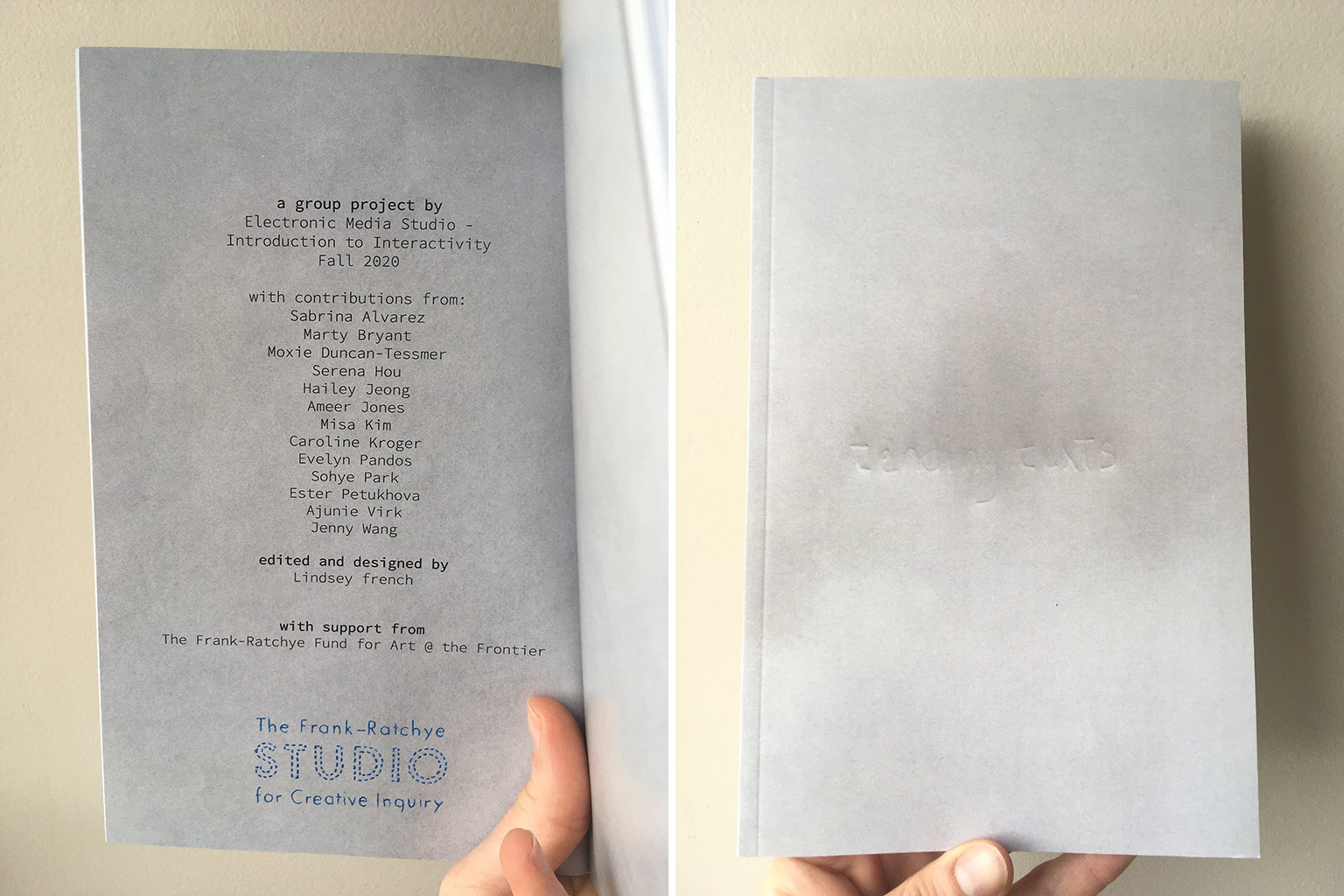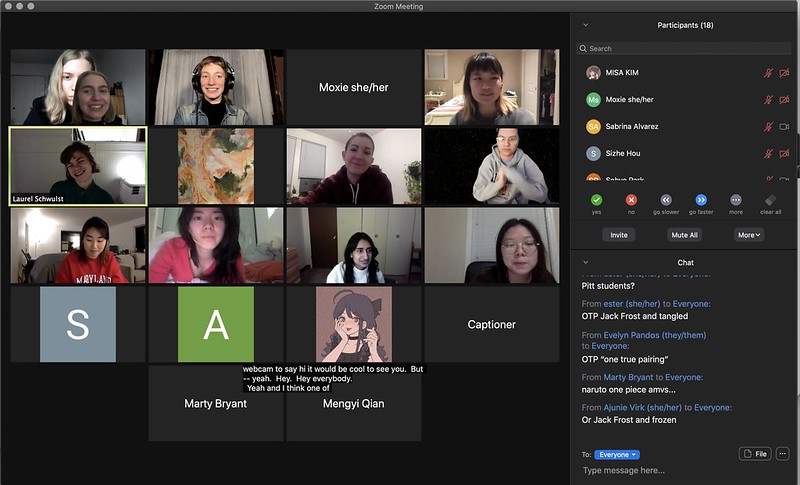Tending Texts
Lindsey French and EMS-II Students (2020)
Tending Texts is a publication of of texts generated by members of Prof. Lindsey French’s fall 2020 course, Electronic Media Studio: Introduction to Interactivity, at Carnegie Mellon University’s School of Art. Over the course of several weeks, students each created a text-based work that in some way alters, transforms, collaborates with, contaminates, or otherwise transformed a source text. After creating a text, students then selected, curated, or edited their results, to present in the format of this printed publication. (Full PDF here)
The project embraces the poetic potential of natural language processing, machine learning, and collective work, and we invited into the project not only our own tendencies as artists, but texts we would like to tend. In this project we work with source texts that included: tender notes from friends, angsty teenage diaries, the news headlines, mis-captioned movie quotes, descriptions of games which lead us into alternative worlds, a vocabulary list without the letter R, a story of a magical lake, a song about change, nursery rhymes and children’s songs.. What can we learn from language, when we allow it to change, and it to change us?
The source texts and our interventions establish relationships that begin with the relationship between artist and text, and extend beyond to include those at and beyond the edges of consent: the writer of the text, the programs we used to intervene, those involved in making those programs accessible to us in our creative processes, the machines that run our code, the extractive economies that make these machines.
This book is in many ways about recognizing the work before us that has made it possible to think and rethink together, and so I’d like to offer some gratitude for the work of many individuals and collectives before us. We are particularly grateful for the organizers and broader community of p5.js, Allison Parrish’s wonderfully accessible text tutorials, Daniel C. Howe’s RiTa.js library, the easy-to-approach tool and language Tracery by Kate Compton, the many wonderful videos and code samples by Daniel Shiffman, Golan Levin for his mentorship, and Microgrant #2021-013 of The Frank-Ratchye Fund for Art @ the Frontier for funding the project.

